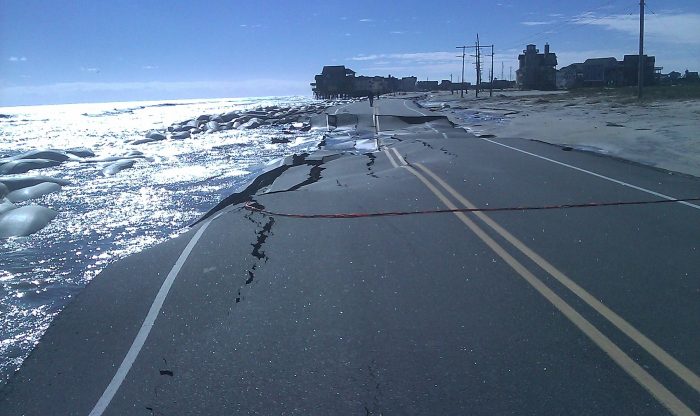SELC supports House infrastructure bill, with a few caveats
A major federal transportation bill on its way to a vote in the House of Representatives marks a milestone in efforts to reduce the contribution of highway construction and vehicle emissions to climate change.
The House bill to reauthorize the main federal surface transportation act goes much further than its Senate counterpart—which received a poor report card from SELC— in recognizing how rethinking components of our traditional approach to planning and funding transportation fits into a broad strategy to reduce climate-changing emissions.
Transportation bill report card: Some A’s, but also D’s and F’s
“Overall, this is a huge step forward in addressing the top driver of climate change,” said Trip Pollard, leader of SELC’s Land and Community Program. “This bill features innovative approaches to reorienting transportation that we have long called for, although parts of the bill still need improvement.”
The House’s “INVEST in America Act” aims to make transportation more environmentally sound by encouraging modern, cleaner transportation alternatives and by making it easier for people to leave their cars at home more often.
Among other things, the bill:
- Considers transportation as a climate issue and an issue of environmental justice
- Requires states to account for climate change in transportation planning
- Authorizes grants for cleaner passenger trains and buses
- Provides financial incentives for states to reduce carbon dioxide emissions
- Encourages programs to increase the use of bicycles, electric scooters and other kinds of environmentally friendly personal transportation

“There are a few elements in the bill that still need work,” said SELC senior attorney Kym Hunter. “Some of the funding for highway projects includes earmarks that run counter to the bill’s overall goals of combating climate change. But by and large, this House bill moves the conversation on transportation funding into welcome new territory.”
Moreover, unlike its Senate counterpart, the House reauthorization bill does not include damaging provisions to scale back the National Environmental Policy Act, or NEPA. While the Senate bill calls for arbitrary timelines and unfunded mandates that would lead to rushed, uninformed reviews, the House version keeps that important environmental law intact, and amendments introduced during committee to scale back NEPA were all sounded rejected.
The more gas-burning cars we can park the better for the air we breathe.
Trip Pollard, Leader of SELC’s Land and Community Program
“The House reauthorization bill would go a long way toward cleaning up our dirty transportation system— an overhaul that’s long overdue,” Pollard said. “It will make the vehicles traveling our roads, rails and waterways greener and cleaner while advancing innovative ways for people to get to work and school without relying on cars. The more gas-burning cars we can park the better for the air we breathe.”
The legislation still has a long way to go. The House version of the bill will next go to the floor for a vote by the full House; its Senate counterpart will have to pass through additional committees before a full Senate vote. After passage through their chambers, a conference will be convened to reconcile the different approaches.
SELC will continue to work hard to advocate for the best legislation possible throughout this process. We are excited to ensure that, going forward, all federal transportation legislation includes climate and environmental justice as guiding principles.
